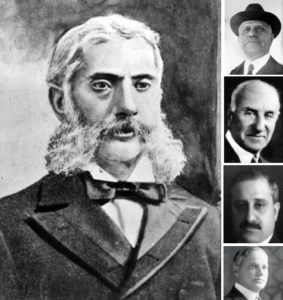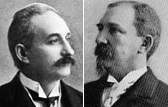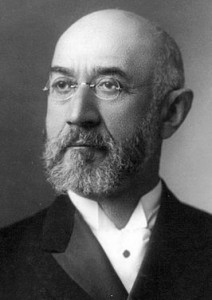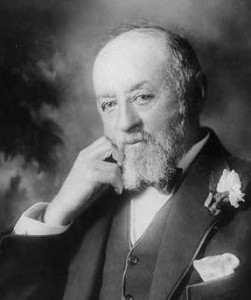In honour of Jew of the Week’s 9th birthday this November, we will feature a month-long series on the Sassoon family, the “Rothschilds of the East”. This is Part 3. Read Part 1 here and Part 2 here.
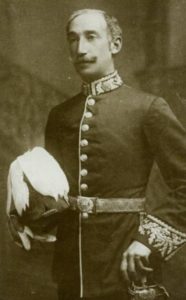 Sir Edward Sassoon (1856-1912), the son of Albert Sassoon, was born in Bombay, India. He studied at the University of London, and served in the British Army, rising to the rank of major. Edward diligently continued the communal and philanthropic work of his father. In 1899 he was elected to the British House of Commons. One of the most famous bills he proposed was a law to make wireless telegraphs mandatory on all passenger ships. However, the bill was struck down over budget issues—until 1912, when the Titanic sank. By 1914, an international treaty made it mandatory for all passenger ships to have telegraphs. Sir Edward was a close friend of Arthur Balfour, famous for his 1917 Balfour Declaration that paved the way for establishing the State of Israel. Edward married Aline Caroline de Rothschild, granddaughter of (former Jew of the Week) Jacob “James” Rothschild.
Sir Edward Sassoon (1856-1912), the son of Albert Sassoon, was born in Bombay, India. He studied at the University of London, and served in the British Army, rising to the rank of major. Edward diligently continued the communal and philanthropic work of his father. In 1899 he was elected to the British House of Commons. One of the most famous bills he proposed was a law to make wireless telegraphs mandatory on all passenger ships. However, the bill was struck down over budget issues—until 1912, when the Titanic sank. By 1914, an international treaty made it mandatory for all passenger ships to have telegraphs. Sir Edward was a close friend of Arthur Balfour, famous for his 1917 Balfour Declaration that paved the way for establishing the State of Israel. Edward married Aline Caroline de Rothschild, granddaughter of (former Jew of the Week) Jacob “James” Rothschild.
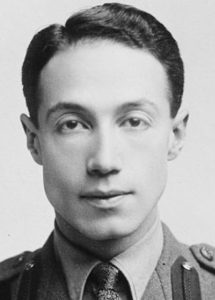 Their first child was Sir Philip Albert Gustave David Sassoon (1888-1939). He studied at the prestigious Eton College, and then at Oxford—one of just 25 Jewish students at the time. Following this, he joined the British Army and had the rank of second lieutenant. He followed his father into Parliament in 1912. When World War I broke out, Sir Philip was sent to mainland Europe and was the private secretary of Field Marshal Douglas Haig, commander of the British Expeditionary Force. He was later awarded the Croix de Guerre for “distinguished service” in the war. Returning to Parliament after the war, Sir Philip made it his personal mission to bring civilian air travel to England and the world. Airplanes were still little-known by the public, and considered far too dangerous. Sir Philip bought his own airplane in 1919 to promote air travel to the masses. In 1931, he was appointed Under-Secretary of State for Air. He also served as England’s First Commissioner of Works, and chaired London’s famous National Gallery. Philip owned Trent Park in the north of London, and built a mansion there where he liked to host his many friends. Interestingly, during World War II the British used Trent Park as a luxury prison for high-ranking German POWs, on whom they carefully spied and extracted critical information, which was instrumental for winning the war.
Their first child was Sir Philip Albert Gustave David Sassoon (1888-1939). He studied at the prestigious Eton College, and then at Oxford—one of just 25 Jewish students at the time. Following this, he joined the British Army and had the rank of second lieutenant. He followed his father into Parliament in 1912. When World War I broke out, Sir Philip was sent to mainland Europe and was the private secretary of Field Marshal Douglas Haig, commander of the British Expeditionary Force. He was later awarded the Croix de Guerre for “distinguished service” in the war. Returning to Parliament after the war, Sir Philip made it his personal mission to bring civilian air travel to England and the world. Airplanes were still little-known by the public, and considered far too dangerous. Sir Philip bought his own airplane in 1919 to promote air travel to the masses. In 1931, he was appointed Under-Secretary of State for Air. He also served as England’s First Commissioner of Works, and chaired London’s famous National Gallery. Philip owned Trent Park in the north of London, and built a mansion there where he liked to host his many friends. Interestingly, during World War II the British used Trent Park as a luxury prison for high-ranking German POWs, on whom they carefully spied and extracted critical information, which was instrumental for winning the war.
Words of the Week
The main superiority of man over animals is in his power of speech. But if we speak vanity and folly, we are no better than animals.
– Rabbi Moshe Leib Erblich of Sassov (1745-1807), the Sassover Rebbe

